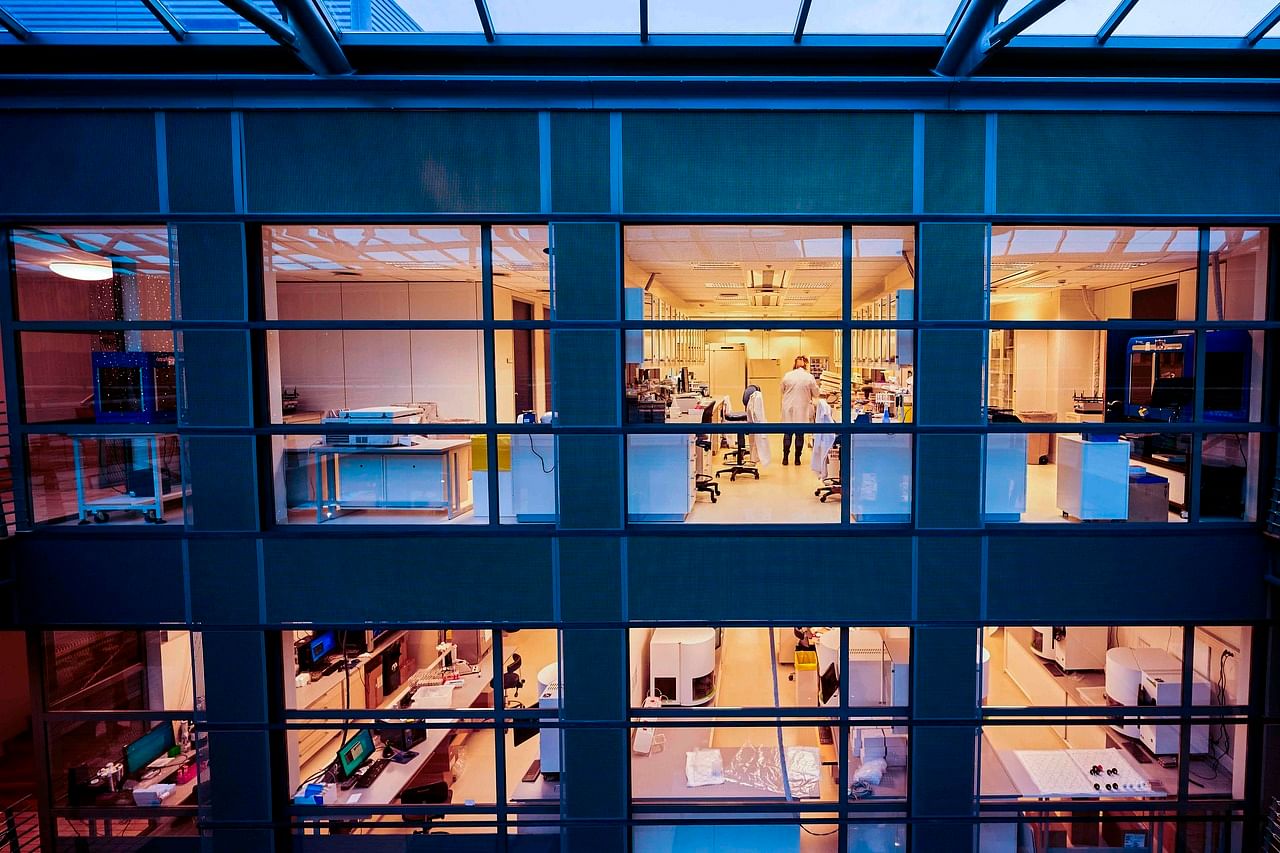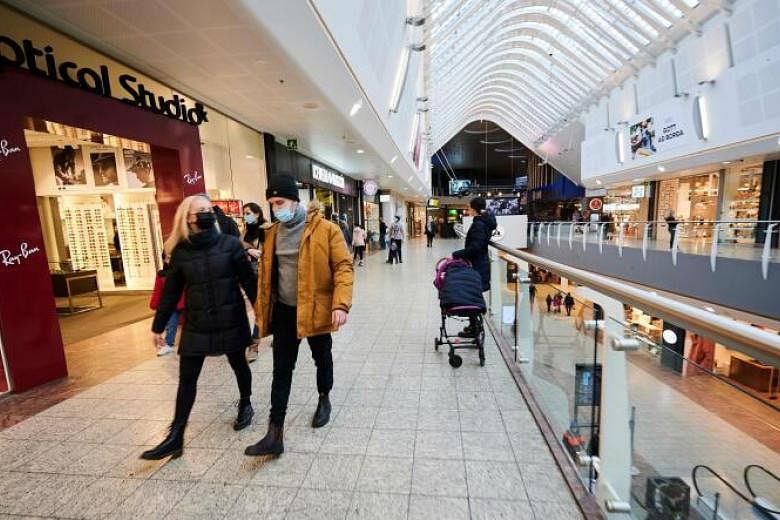REYKJAVIK (BLOOMBERG) - A push by Iceland to get Pfizer's backing for a nationwide study on the ability of vaccines to quickly create herd immunity has run into an unexpected snag. The tiny island nation has done too good a job keeping Covid-19 in check.
Before Christmas, Mr Kari Stefansson, the head of Iceland-based deCode Genetics, and Dr Thorolfur Gudnason, the country's chief epidemiologist, reached out to Pfizer executives. Their pitch: If Iceland could quickly get 500,000 doses of the Pfizer-BioNTech vaccine, the country could inoculate about 70 per cent of its population by the end of March, creating the basis of a real-life study on whether herd immunity can be achieved as a result.
But it wasn't to be, according to the two men. As new infections declined, Pfizer came to the conclusion that there were too few cases in Iceland to support such a study, they said. "How can you show that a vaccine is a good protection when there are no infections?" Mr Kari said in an interview.
More than 14,500 people, or about 4 per cent of Iceland's population, have already received one or two doses of either the Pfizer vaccine, or the shots produced by Moderna or AstraZeneca. That came about as part of Iceland's participation in a pan-European deal that let countries get shots based on their population.
If the Pfizer deal had gone through, it would have put Iceland toward the top of the list.
"By getting early delivery of vaccine we could do this faster, in a more structured way and be able to follow the consequences or the results of that," Dr Thorolfur said. "I think few nations have infrastructure as good as Iceland to do such a study."
He expects vaccine deliveries to Iceland will speed up in the second and third quarters of 2021 as deals with new manufacturers start to click in.
Meanwhile, Pfizer, in a statement, seemed to leave the door at least slightly ajar. "There are several types of real-world effectiveness studies that are under evaluation in different countries, including Iceland. As discussions are ongoing, we are unable to provide further comment at this point."
With just one major port of call, a limited population and a nationalised healthcare system, Iceland is particularly well-equipped to tamp down cases of Covid-19.
While that is generally considered a good thing, it restricted how many infections would be seen in a large study.
"You can thank Thorolfur for that," Mr Kari said. "He designed the system here so we have very few cases now."
Iceland never mandated lockdown measures as extreme as other nations, including the United States and Britain. But the country quickly instituted social distancing and mask measures, banned large gatherings and closed all schools besides primary schools.
With travel in and out of Iceland now tightly controlled, Icelanders have been able to enjoy more freedoms at home than other European nations. So far, the country has been able to limit the British variant's spread to just 60 individuals, mostly at the borders.
DeCode, a world-leading population genomics firm that was acquired by California drugmaker Amgen in 2012, has worked closely with the Icelandic government in its pandemic response.
Even before more contagious variants of the virus appeared, deCode sequenced every case of the disease in Iceland, making it possible to track the spread and mutations with extreme precision.
More generally, deCode has also accumulated vast data on Icelander genomes, which is expected to be beneficial for answering questions about the role played by genetics in determining why people are impacted differently by the disease.
"The concept of herd immunity is something that has never really been researched," Mr Kari said before Pfizer decided to pull back.
"As of now it is just a theory, so this would be an opportunity to dive deeply into that concept."
The experiment he and Dr Thorolfur proposed to Pfizer would, in many ways, be "the most remarkable vaccine campaign you can imagine", he said prior to the drugmaker's decision.
It could have taken a year or more to get final answers to all the questions posed, he said.
"These are about herd immunity, whether some mutations of the virus will be able to escape the immunity, how fast the antibody forms in the blood after vaccination and how fast it starts to decline," he said.

Iceland is not the only country that has spoken with Pfizer about accelerating its vaccine deliveries to measure the shot's effectiveness. In January, the drugmaker agreed to a deal with Israel to speed up vaccine deliveries in a push to immunise all of Israel's citizens over the age of 16 by the end of March. In return, the company would get extensive data on the inoculation programme.
More than 400,000 Israelis have received both doses of the vaccine, and the country says that soon afterward, only 63 people, or 0.014 per cent, had contracted the virus. Those who received just one dose also appear to be significantly less likely to contract the virus, health officials said.
More study will be needed, but if the results hold up, it suggests that the efficacy could be even better than the 95 per cent the drugmaker reported.
Iceland, meanwhile, has already proved useful as a sort of living laboratory. The country moved quickly to set up a large-scale testing programme, a collaboration between the national health authorities and deCode.
A study by deCode geneticists, Iceland's health directorate and National University Hospital, published on April 14 in the New England Journal of Medicine, provided early insights on the virus, including a high prevalence of asymptomatic cases and that children seemed less vulnerable to the illness.











